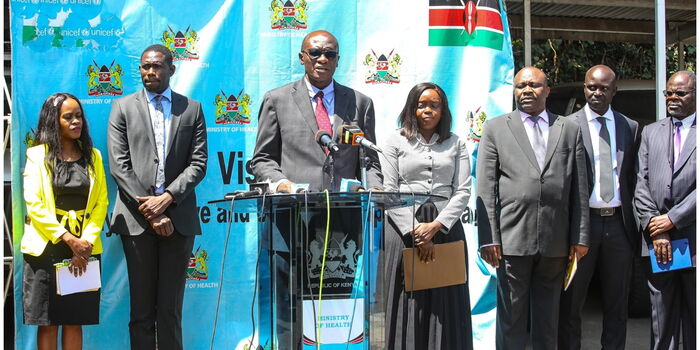Government Explains Why Some Kenyans Registered for SHA Are Still Unable to Access Services
The government has explained why some Kenyans registered for the Social Health Authority (SHA) are still unable to access services.
The Director-General for Health, Dr. Patrick Amoth, revealed on Wednesday, February 5, that the main reason for this issue lies in an important step being overlooked during the registration process.
Dr. Amoth, speaking at a press briefing, provided an update on the ongoing implementation of the healthcare system.
He shared that the registration number had nearly reached 19 million, a significant achievement. However, despite the large number of Kenyans who have registered, some are still unable to receive services at designated health facilities.
This is mainly because they have not completed the means testing process, which is essential for full access.
Means testing is a process that evaluates the financial situation of households, especially those without regular incomes.
It involves looking into the socio-economic factors of a household, such as its income level, household size, and living conditions.
According to the Health Ministry website, this is a critical step that ensures only those who truly need assistance are covered by the SHA.
Dr. Amoth highlighted that one of the major challenges faced by the government is accurately determining the income levels within households.
The means testing process has shown that, on average, a premium of KSh 592 is needed.
Dr. Amoth pointed out that the primary issue is that many Kenyans who register for SHA do not complete the entire registration process, particularly the means testing stage.
This incomplete process leaves some people ineligible for services.
For those employed with regular salaries, contributions are automatically deducted every month by their employer.
These members contribute 2.75% of their income, with a base amount set at KSh 300. However, out of the 19 million registered, only 3.1 million have completed the means testing.
As a result, those who have not completed the process cannot access primary healthcare services or emergency services under the Social Health Insurance Fund.
Dr. Amoth emphasized that the solution lies in early registration for the SHA, as opposed to waiting until a medical emergency arises.
He encouraged Kenyans to seek assistance from community health promoters who can guide them through the complete registration process.
To address the challenges surrounding SHA, various stakeholders are working on plans to improve the new healthcare system, which is still in its early stages.
In January, leaders from Machakos County proposed returning some key functions of SHA to the national government, believing this would help address the shortage of skilled personnel in county hospitals.
Meanwhile, members of parliament have given the Ministry of Health and SHA representatives two weeks to come up with a detailed report on the major issues currently plaguing the new system.
Join Gen z and millennials TaskForce official 2025 WhatsApp Channel To Stay Updated On time the ongoing situation https://whatsapp.com/channel/0029VaWT5gSGufImU8R0DO30


